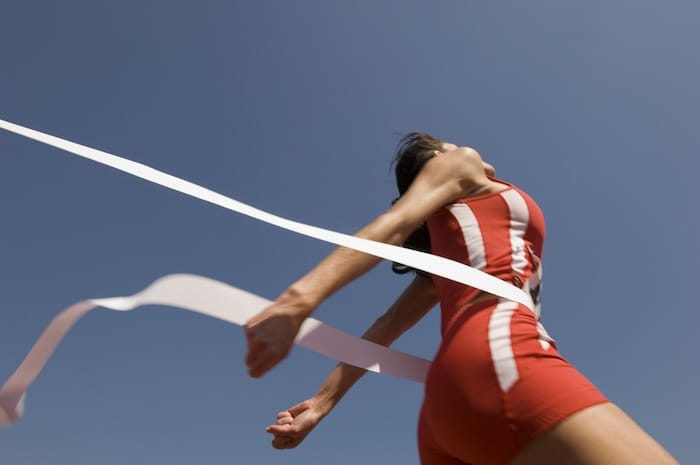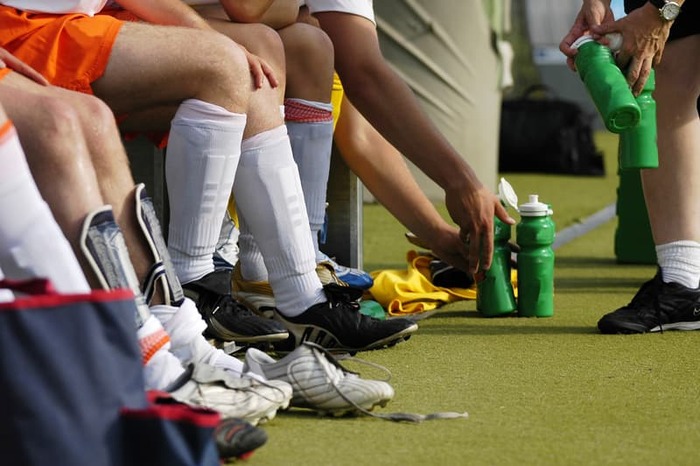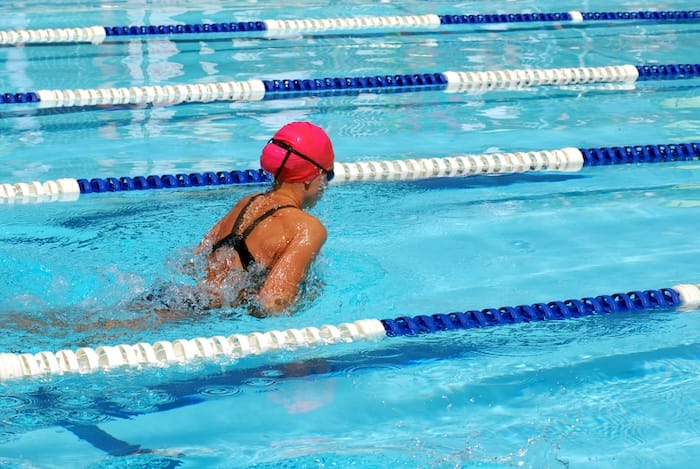- Calls to this hotline are currently being directed to Within Health, Fay or Eating Disorder Solutions
- Representatives are standing by 24/7 to help answer your questions
- All calls are confidential and HIPAA compliant
- There is no obligation or cost to call
- Eating Disorder Hope does not receive any commissions or fees dependent upon which provider you select
- Additional treatment providers are located on our directory or samhsa.gov
What Athletes Are Most Likely to Have an Eating Disorder
There’s a lot of pressure on athletes to be able to physically perform to the best of their ability. This can increase the risk of developing an eating disorder. This post will cover which athletes are more likely to struggle.

Athletes & Eating Disorder Statistics
Here are some facts and statistics about eating disorders in athletes:
- 42% of high school athletes struggle with some form of disordered eating
- 35% of female college athletes struggle with anorexia, compared to 10% of male college athletes
- Disordered eating impacts 62% of female athletes and 33% of male athletes
- Athletes who struggle with disordered eating are 8 times more likely to be injured
- 58% of female college athletes meet criteria for bulimia, compared to 38% of male athletes [1]
Sports & Disordered Eating
There’s a lot of benefits to sports! Whether it be the physical exercise, teamwork, or just the fact that they’re fun—there’s a lot of good in sports. However, the combination of physical demand and focus on body weight or shape can be dangerous.
Not all sports focus on weight or body image, but certain sports do. These are called aesthetic or weight-class sports. Aesthetic sports include sports that promote being thin for appearance reasons. These sports include gymnastics, figure skating, dance, rowing, or swimming.
Another type of sport that focuses on weight is weight-class sports. These sports use someone’s weight to determine which division they can compete in. Some examples of weight-class sports include boxing or wrestling.
These types of sports can increase the likelihood that someone would develop an eating disorder because of the pressure to be a certain weight or look a certain way. However, while this pressure can contribute to someone developing disordered eating, there are often other factors at play.
Risk Factors for Eating Disorders in Athletes
- Being an elite athlete
- Coaches who focus mostly on success rather than the athlete’s value as a whole person
- Low self-esteem
- Family stress
- Family history of eating disorders
- History of physical, emotional, or sexual abuse
- Perfectionism
- Self-esteem or identity is based only on being an athlete [2]
There are some ways to support athletes that can help lower the risk of them developing an eating disorder.

Support for Athletes
There are ways that coaches, parents, and teammates can support athletes. The National Eating Disorder Association recommends these things:
- Positive coaching style instead of a negative style that only focuses on performance
- Healthy attitudes about different body shapes and sizes
- Coaches who focus on internal qualities, such as motivation or dedication, and how these contribute to athletic success rather than blaming everything on weight or shape
- Coaches and parents who talk about the normal changes that happen in a female body that can influence weight and shape [2]
It’s also important to note that this pressure to be thin doesn’t just exist for athletes. This is a standard that exists in our society as a whole. It’s just that the impact of our societal obsession with thinness trickles down and intensifies for athletes because of the attention that is paid to their bodies.
Changing the way we talk about body image, beauty, and appearance can have a positive impact for athletes—and everyone else.

Supporting Coaches
Preventing eating disorders is important. It’s also just as important to know how to tell when someone is struggling. If someone is struggling and no one notices, this drags out the recovery process. The sooner an eating disorder is identified, the sooner someone can get help.
Currently, even though 91% of coaches for college athletes said they have dealt with an athlete with an eating disorder, only 27% felt confident they could identify when someone was struggling [1].
It can be helpful for coaches and other professionals who work with athletes to have some education on the warning signs and symptoms of eating disorders. For this reason, the National Eating Disorders Association (NEDA) has put together a toolkit .
This document goes over prevention techniques, early intervention protocols, and treatment options. Making use of this information is a great step in the right direction.

Barriers to Athletes Getting Help
Even though eating disorders are very dangerous mental illnesses, it can be difficult for someone to want to get help. This may be especially true for athletes who feel that the disordered behaviors are important for their athletic success.
It’s also common for people with eating disorders to be in denial at first. It’s very vulnerable for someone to admit they have a problem. If you suspect that you are may be struggling, you can reach out for help.
There are a lot of ways to do this, but one great resource is NEDA’s helpline. You can chat, text, or call someone on their team. Taking the first step is often the most difficult, but it will be worth it.
Resources:
[1] National Eating Disorders Association. (n.d). Eating disorders and athletes. Retrieved November 10th, 2021 from https://www.nationaleatingdisorders.org/eating-disorders-athletes [2] National Eating Disorders Association. (n.d). Athletes and eating disorders. Retrieved November 10th, 2021 from https://www.nationaleatingdisorders.org/athletes-eating-disordersThe opinions and views of our guest contributors are shared to provide a broad perspective on eating disorders. These are not necessarily the views of Eating Disorder Hope, but an effort to offer a discussion of various issues by different concerned individuals.
We at Eating Disorder Hope understand that eating disorders result from a combination of environmental and genetic factors. If you or a loved one are suffering from an eating disorder, please know that there is hope for you, and seek immediate professional help.
Published December 20th, 2021, on EatingDisorderHope.com
Reviewed & Approved on December 20th, 2021, by Jacquelyn Ekern MS, LPC

